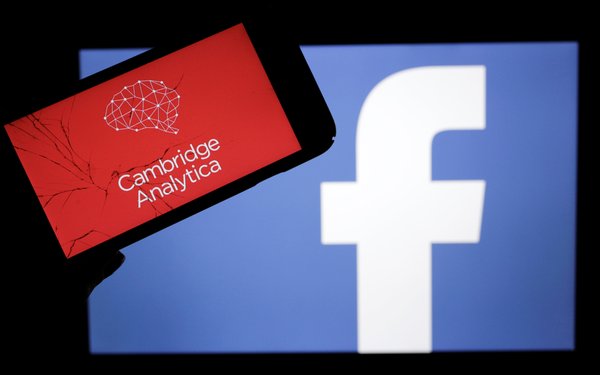
Facebook is seeking to immediately appeal a judge's recent decision to allow users to proceed with claims that the company violated people's privacy by sharing their information with outside
developers, including the data consultancy Cambridge Analytica.
The company says in papers filed Tuesday with U.S. District Court Judge Vince Chhabria that the 9th Circuit Court of Appeals
should decide whether the alleged privacy violations resulted in the kinds of injuries that would justify a federal lawsuit.
The question of when a privacy violation warrants a lawsuit
“is an evolving issue of increasing importance that already has drawn considerable attention from the nation’s appellate courts, including the U.S. Supreme Court,” Facebook writes in
its new court papers.
advertisement
advertisement
Facebook is asking Chhabria for permission to immediately appeal his recent decision rejecting the company's bid to dismiss the case before trial.
The dispute
stems from a potential class-action lawsuit brought by users last
year, shortly after it emerged that defunct data consultancy Cambridge Analytica harvested the data of millions of Facebook users without their knowledge or explicit consent.
Cambridge
Analytica obtained the information from researcher Aleksandr Kogan, who gleaned the data in 2014 through the personality-quiz app "thisisyourdigitallife," according to reports. Only 270,000 Facebook
users downloaded Kogan's app, but he gathered data for up to 87 million users.
The lawsuit was later expanded to include allegations that Facebook shared users' data with a broad array of
outside developers, including the video provider Netflix.
The claims in the complaint include violations of California privacy law, the federal wiretap law and the federal video privacy
law.
Facebook argued that the claims should be dismissed for numerous reasons, including that users weren't injured by the alleged disclosures, and therefore lacked “standing” to
move forward in court.
Chhabria rejected that argument, ruling that Facebook's position disregards “the importance of privacy in our society, not to mention the historic role of the
federal judiciary in protecting it.”
Facebook argues in its new court papers that Chhabria's decision “stands in tension” with decisions issued by other judges.
“There can be no dispute that these important and evolving data privacy issues are the subject of substantial attention and disagreement among the nation’s courts,” Facebook
writes.
The Supreme Court ruled in 2016 that consumers could only
proceed with privacy lawsuits if they showed they suffered a “concrete” injury, but added that even intangible injuries could be concrete. Since then, courts across the country have
struggled to figure out what types of privacy injuries can support a lawsuit.
Earlier this year, a panel of the 9th Circuit sided against Facebook over whether users could sue for alleged
violations of a biometric privacy law. That matter centers on allegations that Facebook violated an Illinois law by creating a database of “faceprints.”
In that case, a three-judge
panel rejected Facebook's argument that consumers weren't injured by the alleged practices, and therefore shouldn't be allowed to move forward.
The judges suggested in their ruling that the
creation of facial templates could have the kind of far-reaching consequences that justify a lawsuit. “Taking into account the future development of such technology ... it seems likely that a
face-mapped individual could be identified from a surveillance photo taken on the streets or in an office building,” the judges wrote. “Or a biometric face template could be used to unlock
the face recognition lock on that individual’s cell phone.”
Facebook recently asked the full 9th Circuit to re-hear that case. That application is still pending.